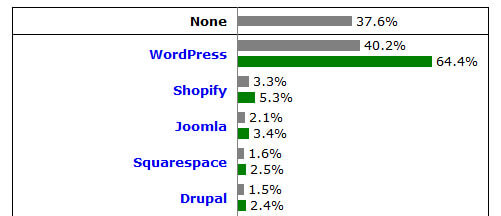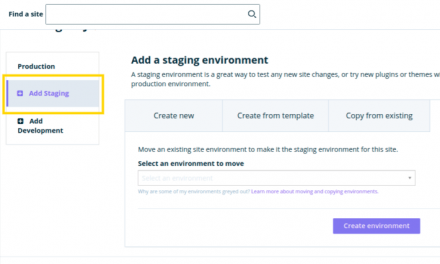When looking for a place to host your website, you might weigh the decision of using managed WordPress hosting vs a VPS (Virtual Private Server) setup.
On paper, both sound like good options, promising speed, security, privacy, and everything else you need. So, is there a big difference? Which of these is the best option for you? That’s something we want to find out in this article.
In the following, we will pit managed WordPress hosting vs VPS, learn about their differences, pros and cons, and what’s most suitable for what kind of users.
Let’s get going!
Managed WordPress Hosting Vs VPS – What’s the Difference?
Before talking about advantages and disadvantages of each setup, let’s first go over what exactly we are talking about.
Managed WordPress Hosting
Let’s take this term apart. You probably already know what hosting is. It’s when you pay a company a fee for the option to store website files on their servers in order to make them accessible for Internet users.
If you are on this particular blog, chances are good you are also familiar with WordPress. If not, WordPress is a piece of software called a content management system (CMS). It makes it easy to create and manage almost any kind of website. WordPress is also the most successful system of its kind, powering 40% of the entire world wide web.
So that leaves “managed”. What does that mean?
In contrast to classic “unmanaged” hosting, going for a managed service gives you access to a whole range of additional perks. Many of the more complicated parts of running a website, like security, speed optimization, backups, or database maintenance are taken care of by the hosting company.
Their team of experts work in the background to make sure everything is up to snuff. Consequently, your job is mostly concentrating on growing your website, creating content, doing SEO, etc. However, the technical parts you typically don’t have much to do with.
Virtual Private Server (VPS)
What makes this type of hosting special? Let’s take this apart as well.
We already covered what a server is, so that part is clear. The “private” part is a way to differentiate this type of setup from shared hosting. Like the name suggests, in this setup your site shares a server with a whole bunch of other websites.
It’s the cheapest option (thanks to economies of scale) but it also means you are pretty much competing for server resources. If one of them hogs too many of them, it slows down the rest.
On VPS, you also share the server, however, every website has a set amount of resources at their disposal that they can’t exceed. This negates a lot of the negative effects of the cheaper option.
So, why “virtual”? Because, you are still on the same server as others but with firm barriers between you. You still don’t have your own machine but a virtual server is almost as good as one. Generally, it’s somewhere in the middle between shared and dedicated hosting, where the entire server belongs to you.
Pros and Cons of Both Hosting Types
Alright, now that we’ve cleared that up, let’s talk about how these two types of hosting stack up against each other. In the following, we will go over the pros and cons of both managed WordPress hosting and VPS.
Ease of Use
As you can imagine, managed WordPress hosting is a lot more comfortable to use. What with the hosting provider taking over all the tedious tasks, there is simply a lot less to do. You can completely focus on managing and growing your site while the rest is taken care of for you. Even installing WordPress happens automatically.
Because managed providers only use WordPress, they also often develop additional tools to make working with your site even easier. Plus, they frequently have features like one-click staging and development sites, version control, and more.

In contrast to that, with VPS hosting, everything is on you. You need the technical skills to administer a server as well as build and manage whatever you want to host on it (or have someone at hand who can do these things).
For example, if you want to use WordPress, it’s up to you to optimize the server environment for running it. Help from your host is usually limited to technical problems. They are not moving a finger to help you set up your website.
Of course, if that’s what you want and can handle, it’s perfect. Just be aware of the extra time you will have to put in to keep everything running. On the other hand, for average users it might be too much to ask or mean too steep a learning curve.
Security
If you are a technical layperson, a managed solution can be safer simply because security measures are already in place. Thwarting hacking attempts, running server security, applying updates, and doing daily backups — it’s all in the hands of the hosting company.
In addition, these people are specialists, so it’s often better than what you could do on your own. They know the platform inside and out as well as how to close potential weak points. This is something that doesn’t happen on more general web hosting.
Plus, since managed WordPress hosting is made for only one type of use case — WordPress — they can switch off everything else that’s not needed. This closes potential avenues for entry in the process.
In short, for you, security is mostly down to using secure passwords, keeping control of users on your site, and other best practices.

That’s not to say that VPS is less secure than managed hosting — far from it. For one, because you have fewer sites on your server and strong separation, cross-infection from another website is very improbable.
But, just like everything else, you need to know what you are doing in order to keep your site and server safe. Because, again, everything is up to you, including:
- Software updates
- Monitoring logs and server activity
- Setting up and managing a firewall
- Malware scanning and removal
- Brute force protection
- User management and monitoring
As you can imagine, all of this takes time and effort. But, if you do your due diligence, you can absolutely keep a VPS safe as well. It just takes more work.
Flexibility and Control
This is one of the big downsides of managed WordPress hosting. As the name already suggests, with this type of hosting you are bound to one particular CMS. If that’s not what you want to use, it’s automatically disqualified.
Plus, even if using WordPress is what you want, with a managed hosting provider, you will often find that you are not completely free to do whatever you want with it. Many forbid you from using certain components that are not compatible with the architecture.
Furthermore, managed solutions usually limit you to a certain number of websites, depending on your plan. If you want more, you have to pay for it. You also don’t get root access to the server, are unable to make changes to the setup, etc. (though you do get SSH access with a good provider).
On the other hand, flexibility and control is where VPS really shines. You are free to make decisions about your server setup as well as what to use to power your website. If you have the technical skills, you can make whatever changes you want and configure the server to fit your needs perfectly.
For example, you can set up different control panels, host a number of websites based on different systems, and install additional software to improve performance. You also get access to the root folder. Plus, you can simply get in there and make any changes you need without having to wait for someone to do them for you.
Some providers even allow you to upgrade not just the software configuration but also hardware in case you need more performance.
Scalability, Speed, Support
Now let’s talk about the three big S of running a website: scalability, speed, and support.
In terms of scalability, the contest of managed WordPress hosting vs VPS is pretty even. Both types of hosting can handle large amounts of traffic and can be scaled up when needed. If you require more of something and are willing to pay for it, providers can usually just assign more resources to you or move you to a higher-level plan.
In terms of speed, managed WordPress hosting usually wins out of the box. It’s made for one single use case, so servers are usually perfectly optimized for running WordPress at top performance.

If you run WordPress on VPS, you will have a hard time matching it, unless you are an expert. But, just like everything else, if you know what you are doing, you can absolutely have a lightning fast website, whatever you choose to put on your server.
Finally, support is probably better with managed WordPress hosting. They will not just help you with technical server issues but are also knowledgeable in the software powering your site. That way, they can help you with anything related to your CMS as well.
With VPS providers, on the other hand, they primarily provide hosting services to you, so support will focus on that. That’s not to say that it will be worse, just that the scope is likely more narrow.
Pricing
Pricing is another area where managed WordPress hosting has to concede. Because of the added services, it’s usually more expensive than non-managed offers. Depending on the provider, you can expect to start at $15-$25/month for one website. That’s definitely more than shared hosting, which you can get for $3/month.
However, you have to factor in that you are basically paying experts to be available to you 24/7 and take care of a lot of things for you. If you had to hire someone for that, you would probably pay the same money or more.
Plus, VPS also has its price, namely $10-$20/month on the lower end and open-ended toward the top. You definitely pay more than shared hosting, primarily because the provider can put fewer customers on the same machine. This drives up the price.
Note that prices can have a wide range because what you get in terms of setup, bandwidth, hardware, etc can differ widely as well. So it’s important to do some research before making a decision.
It’s also important to note that there is such a thing as managed VPS hosting. Here, you rent a VPS server but the provider also offers a lot of services similar to managed WordPress hosting. Of course, here, prices are also higher.
Verdict: Managed WordPress Hosting vs VPS
Picking the right hosting for you is not always an easy decision. It depends on a lot of factors and also has great influence on what you will spend your time on doing.
When looking at managed WordPress hosting vs VPS, these two options are very different. If you want full control over your server and site as well as have the technical skills to take care of it, unmanaged VPS is a wonderful option. It’s fast, lacks a lot of the shortcomings of shared options but is easier than owning your own server. It’s a good choice for many web developers and website owners.
On the other hand, if you are a beginner or strapped for time and don’t want to deal with a lot of the more annoying parts of building or running a website, managed WordPress hosting might be for you. There’s something very reassuring about knowing that security, backups, and other vital tasks are all taken care of without you having to lift a finger.
Of course, it’s also a matter of pricing. Generally, you need to weigh what’s most important for you at this point, what you need, and what adds the most to your bottom line both in terms of money and time invested. You can make decisions from there.
Where do you stand on the whole managed WordPress hosting vs VPS debate? Let us know in the comments!














